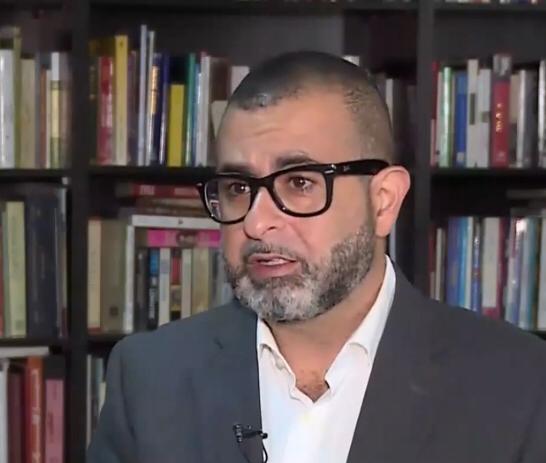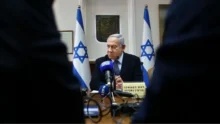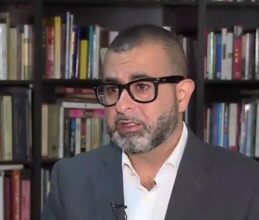Deliani: Aborting the Israeli ethnic cleansing project begins with a ceasefire agreement.
Al-Khamisa News Network - Gaza

Dimitri Diliani, a member of the Revolutionary Council and spokesman for the Democratic Reform Current in the Fatah movement, said that the occupying state is conducting a forced displacement project in Gaza, through bombing, sniping, and destruction, and through liquidation projects under a "humanitarian" cover.
In exclusive statements to Al-Dustour, Diliani added that the goal is clear: to empty Gaza City in preparation for a gradual ground incursion, and to confine the population to crowded pockets that do not exceed 14% of the area of the Strip, while establishing a system of mass detention camps that are marketed as “safe zones.”
Dalyani explained that the next phase, unless an immediate breakthrough is achieved in the negotiations to stop the genocide, is likely to lead to interconnected paths: a calculated ground incursion that advances at the pace of forced displacement and is accompanied by more massacres; the expansion of detention camps southward with harsh rationing of basic necessities of life; and the opening of pressure corridors toward migration to third countries.
Urgent requirements for the ceasefire agreement
Deliani concluded by emphasizing the urgent requirements: "An immediate agreement to stop the war of extermination or establish humanitarian corridors under UN management and independent oversight, an arms embargo on the genocidal state of Israel, and international criminal accountability implemented through universal jurisdiction and full cooperation with the International Criminal Court."
Hebrew media reported Sunday evening that Israeli Chief of Staff Eyal Zamir had officially approved a plan to carry out a large-scale ground operation inside the Gaza Strip, amid escalating tensions and ongoing military operations in the region.
Hebrew reports indicated that the plan approved by Halevi includes intensive ground operations aimed at "dismantling the infrastructure of security threats" within the Gaza Strip, with a focus on specific areas that the military leadership considers "strategic points."
This approval comes after a series of high-level security meetings attended by senior military leaders. During these meetings, the readiness of the ground forces and reserves was assessed, and potential escalation scenarios were studied.
Source: Al-Dustour Newspaper





